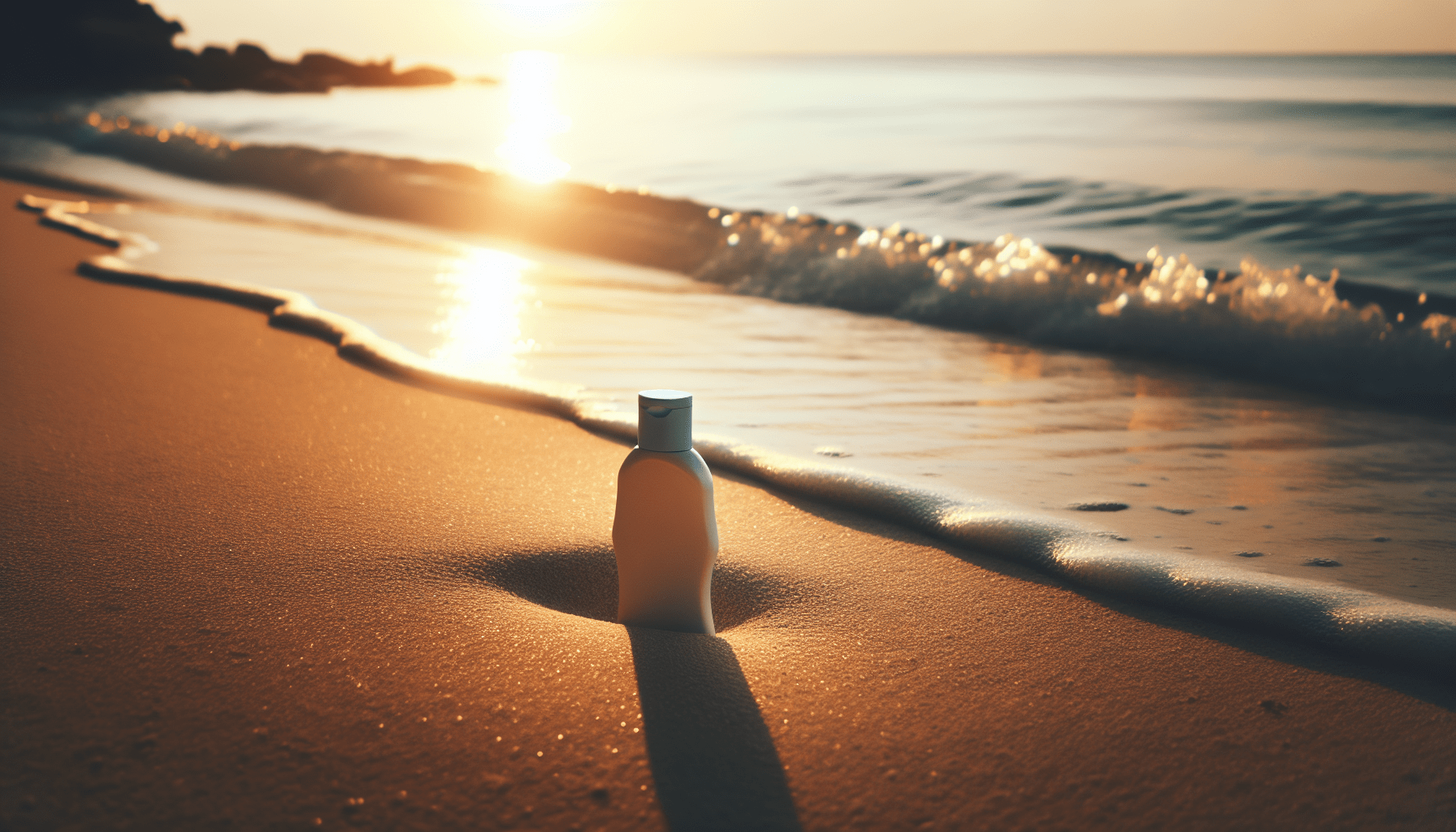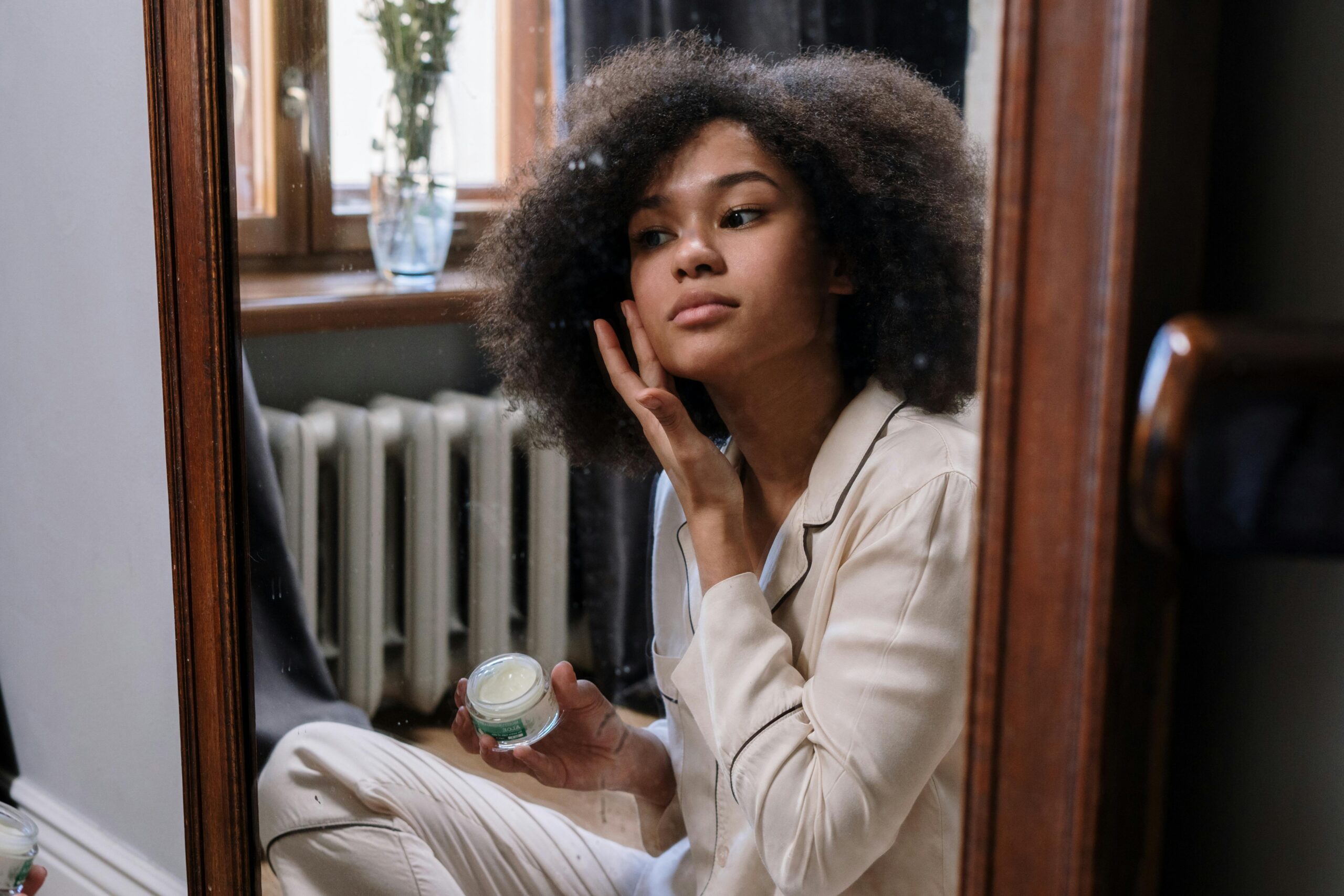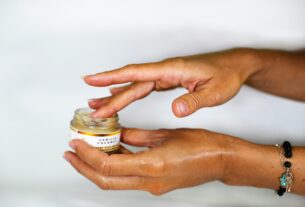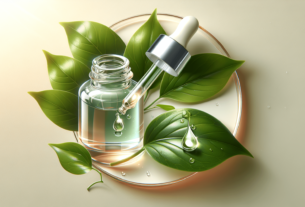Have you ever found yourself wondering why sunscreen is such a vital component of a skincare routine? Well, you’re not alone. Many people grapple with understanding its importance and the profound impact it has on their skin’s health. Let’s delve into why sunscreen should become a non-negotiable part of your daily regimen.
Understanding Sunscreen: The Basics
Before diving into the reasons why you should make sunscreen part of your routine, it’s essential to understand what sunscreen is and how it works. Sunscreen, also known as sunblock, is a topical product designed to protect your skin from the harmful effects of ultraviolet (UV) radiation. UV radiation consists of UVA, UVB, and UVC rays, but since UVC rays are blocked by the Earth’s atmosphere, we mostly contend with UVA and UVB rays.
The Difference Between UVA and UVB Rays
Both UVA and UVB rays have different impacts on your skin:
| Type of Ray | Characteristics | Effects on Skin |
|---|---|---|
| UVA | Longer wavelength, penetrates deeper into the skin. | Causes aging (wrinkles, fine lines), can contribute to skin cancer. |
| UVB | Shorter wavelength, affects the outer layer of skin. | Causes sunburn, directly damages DNA, leading to skin cancer. |
Understanding these differences underscores the importance of choosing a broad-spectrum sunscreen that protects against both UVA and UVB rays.
The Unseen Enemy: UV Radiation
Unlike the tangible adversaries we encounter, UV radiation silently damages your skin, leading to an array of skin issues. Imagine a subtle yet persistent thief sneaking into your home; UV rays are stealthy robbers, gradually taking away your skin’s health.
Immediate and Long-term Effects
It’s easy to shrug off the importance of sunscreen when the damage doesn’t seem immediate. However, both immediate and long-term effects of UV exposure are significant:
- Immediate Effects: Sunburn, redness, and irritation.
- Long-term Effects: Premature aging, hyperpigmentation, and increased risk of skin cancer.

Sunburn: More Than Just Redness
Most people have experienced sunburn at least once. Your skin turns red and painful—the short-term impact is all too familiar. But did you know that repeated sunburns can lead to long-lasting skin damage?
Understanding Sunburn
Sunburn happens when your skin is overexposed to UVB rays, causing immediate cell damage. The body responds by increasing blood flow to the affected area, leading to redness and inflammation. With severe sunburns, you might experience blisters and peeling.
The Consequences of Repeated Sunburns
Each sunburn episode increases your risk of:
- Photoaging: The process of skin aging due to UV exposure, leading to wrinkles, leathery skin, and sunspots.
- Skin Cancer: A critical concern is that every sunburn potentially increases your risk of developing melanoma, one of the deadliest forms of skin cancer.
Anti-Aging Benefits of Sunscreen
A youthful glow is often associated with healthy skin. Yet, UV exposure accelerates the skin aging process. This is where sunscreen becomes your trusty ally in maintaining youthful skin.
Collagen Protection
Collagen, a protein essential for skin elasticity, gets broken down by UV exposure. When collagen breaks down faster than your body can produce it, skin starts to sag and wrinkle. Regular use of sunscreen slows this degradation process, enabling your skin to retain its firmness.
Prevention of Dark Spots
Have you noticed dark patches on your skin, particularly as you age? These spots, known as hyperpigmentation, are primarily caused by cumulative sun exposure. Using sunscreen daily helps even out your skin tone by preventing the formation of these spots.

Sunscreen: Your Defense Against Skin Cancer
When discussing the benefits of sunscreen, its role in preventing skin cancer cannot be overstated. Skin cancer is a grave issue, and proactive steps can significantly reduce your risk.
Types of Skin Cancer
Three major types of skin cancer exist, and each has distinct characteristics:
| Type | Characteristics | Sunscreen’s Role |
|---|---|---|
| Basal Cell Carcinoma (BCC) | Most common, caused by cumulative UV exposure. | Reduces cumulative damage. |
| Squamous Cell Carcinoma (SCC) | Second most common, also caused by cumulative UV exposure. | Protects the outer layers of skin. |
| Melanoma | Least common but most dangerous, caused by intense, intermittent UV exposure. | Defends against severe sunburns that trigger melanoma. |
The Statistics Speak
Consider some startling statistics:
- According to the Skin Cancer Foundation, one in five Americans will develop skin cancer by the age of 70.
- Daily application of SPF 15 sunscreen reduces your risk of developing squamous cell carcinoma by about 40%, and melanoma by 50%.
Incorporating Sunscreen Into Your Daily Routine
Now that you understand the immense benefits of sunscreen, the next step is seamlessly integrating it into your daily routine. It’s simpler than you think and can make a world of difference.
Types of Sunscreen
There are two primary types of sunscreens, and choosing the right one depends on your preference and skin type:
| Type | Description | Benefits | Ideal For |
|---|---|---|---|
| Chemical Sunscreen | Absorbs UV rays and converts them into heat, which is then released from the skin. | Lightweight, easy to apply, transparent. | Everyday use, especially under makeup. |
| Mineral (Physical) Sunscreen | Contains active mineral ingredients (e.g., zinc oxide, titanium dioxide) that sit on top of the skin and reflect UV rays. | Less likely to irritate sensitive skin, immediate protection. | Sensitive skin, young children. |
How to Apply Sunscreen
For sunscreen to be effective, application is key. Here are step-by-step instructions:
- Apply Generously: A common mistake is not using enough. For the face and neck, use about a teaspoon. For the whole body, you need about an ounce, roughly a shot glass.
- Reapply Regularly: Sunscreen wears off, especially if you’re sweating or swimming. Reapply every two hours and immediately after swimming or excessive sweating.
- Don’t Skip Areas: Commonly missed spots include ears, back of the neck, tops of feet, and lips. Use lip balm with SPF for your lips.
- Layer Properly: If you’re using other skincare products, apply sunscreen last. For makeup, apply it after your moisturizer and before your foundation.
Sunscreen in Makeup and Skincare Products
Many modern skincare and makeup products include SPF, making it easier to incorporate sun protection into your daily routine. However, be mindful that SPF in makeup alone may not provide adequate protection. It’s best to use a dedicated sunscreen underneath.

Common Myths About Sunscreen
Misconceptions about sunscreen are widespread. Let’s address some persistent myths and get to the facts.
Myth 1: “You Don’t Need Sunscreen on Cloudy Days”
Even when it’s overcast, up to 80% of UV rays can penetrate the clouds. Therefore, sunscreen is essential every single day, regardless of the weather.
Myth 2: “People of Color Don’t Need Sunscreen”
While higher melanin levels provide some natural protection, people of all skin tones can suffer from sun damage. Sunscreen helps prevent hyperpigmentation and reduces the risk of skin cancer in people of color just as much as in fair-skinned individuals.
Myth 3: “Sunscreen Causes Vitamin D Deficiency”
Though it’s true that sunscreen can block some UV rays that stimulate vitamin D production, you can still achieve adequate vitamin D levels through a balanced diet and moderate sun exposure without sunscreen.
Myth 4: “Higher SPF Always Means Better Protection”
While a higher SPF offers more protection, the difference becomes marginal beyond SPF 30. Instead of focusing solely on SPF numbers, ensure you’re applying enough and reapplying regularly.
Choosing the Right Sunscreen for Different Activities
Your sunscreen needs may vary depending on your activities. Different scenarios call for different formulations to ensure optimal protection without compromising on comfort or other needs.
Daily Use
For regular daily use, opt for a lightweight, non-greasy formula that layers well under makeup and doesn’t clog pores. A broad-spectrum lotion with SPF 30 or higher is usually sufficient.
Outdoor Sports and Beach Days
For activities involving prolonged sun exposure or water, choose a water-resistant sunscreen with an SPF 50 or more. Spray sunscreens are convenient for reapplication.
Sensitive Skin
If you have sensitive skin, go for a mineral sunscreen with zinc oxide or titanium dioxide. These ingredients are less likely to cause irritation compared to chemical filters.
Sunscreen and Your Life Stages
As your life stages change, so do your skincare needs, including your approach to sun protection.
Babies and Young Children
Babies under six months should be kept out of direct sunlight where possible. For older babies and children, use a gentle, fragrance-free mineral sunscreen. Dress them in protective clothing, hats, and sunglasses for added protection.
Teens and Adults
Acne-prone teens should look for oil-free, non-comedogenic sunscreens. Adults can benefit from sunscreens that include moisturizing ingredients to address aging concerns.
Older Adults
As skin thins with age, it becomes more susceptible to UV damage. Older adults should use a broad-spectrum, moisturizing sunscreen to keep skin hydrated and protected.
Conclusion: Making Sunscreen a Habit
Incorporating sunscreen into your routine is a small but mighty step towards maintaining healthy, youthful skin. By understanding its myriad benefits—from preventing sunburn and skin cancer to slowing the aging process—you can appreciate why sunscreen is a skincare staple. Make it a habit, not a hassle. Your future self will thank you for the diligence and care you invest today.
Wouldn’t it be a tragedy to let something so preventable harm your skin’s health and beauty? Embrace sunscreen as your shield against the unseen adversary—UV radiation—and enjoy radiant, resilient skin for years to come.



